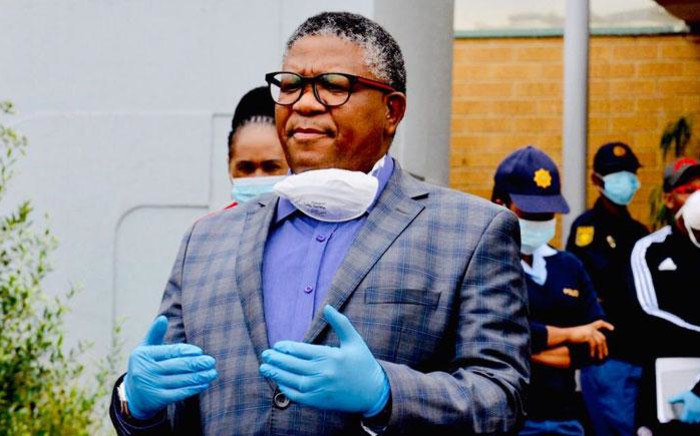Transport minister Fikile Mbalula says that South Africa will adopt a risk-based system in selecting which countries will be allowed to travel into South Africa and which country’s South African citizens will be allowed to fly to.
South Africa will open its international borders on 1 October subject to strict regulations. On this date, all travellers from the African continent and from countries outside the African continent with a low rate of Covid-19 infection and transmission, will resume.
Mbalula told eNCA that government will largely adopt same approach that was used before South Africa entered into a level 5 lockdown, with country’s categorised as ‘high-risk’ or ‘low-risk’ for travel purposes.
“For instance, if you take the whole of the United States it will probably be high risk, and we will then deal with it as such. Whereas the UAE will likely be seen as a low-risk country,” Mbalula said.
The Transport minister indicated that the government will look at placing entire countries or regions on the high-risk list due to the possibility of connecting.
Using the example of the United States, he said it was possible for passengers to board and fly anywhere from New York, to Miami or Los Angeles. This means that the country is as a whole as a risk.
However, he said that the government will also take a ‘differentiated approach’ and formulate its list on a country-by-country basis, based on the current coronavirus situation.
This means that countries like Italy and Brazil could be added to the low-risk list despite previously reporting a high number of cases. This also means that the whole of Europe won’t be seen as a single region.
Mbalula said that the list will be published later this week and will be based on science and research.
“We are opening up because we want people to come slowly and to start to travel for leisure and tourism. But what the president has directed is that we must do this cautiously.
“Eventually we will open up (completely) but we can’t do it all at once like ‘boom’. This is especially the cased for international travel where we can have people move from one city and one country to the other.”
Additional rules
In an analysis of the new level lockdown regulations, Ahlisha Yesmariam of law firm Baker McKenzie outlined the following points:
- The 35 land borders that are currently closed, will remain closed and the 18 land borders which were operating on a partial basis will be fully operational.
- International air travel will be restricted to the following airports:
- OR Tambo International Airport
- King Shaka International Airport
- Cape Town International Airport
- Travel to the Republic of South Africa will remain prohibited for travellers from high-risk countries (countries with high Covid-19 infection and transmission rates).
- International travel from high risk countries will remain prohibited except for business travel, which may be allowed with the approval of the Home Affairs Cabinet member.
- Travel to and from the Republic of South Africa will be allowed, subject to those travellers entering the Republic being from low risk countries only, and who adhere to the below requirements:
- The traveller must provide a negative COVID-19 test that has been obtained no more than 72 hours prior to the date of travel
- If the traveller is unable to produce a negative COVID-19 test, the traveller will be required to quarantine at their own cost
- All commercial seaports will be opened.
- Subject to the compliance protocols for entering and exiting the Republic of South Africa, daily commuters from neighbouring countries who attend or teach at a school will be allowed to enter and exit the Republic.
- Certain visa application services on offer will resume at Home Affairs from this week. This list will be under review and will be amended as required.
Read the full Article here.


